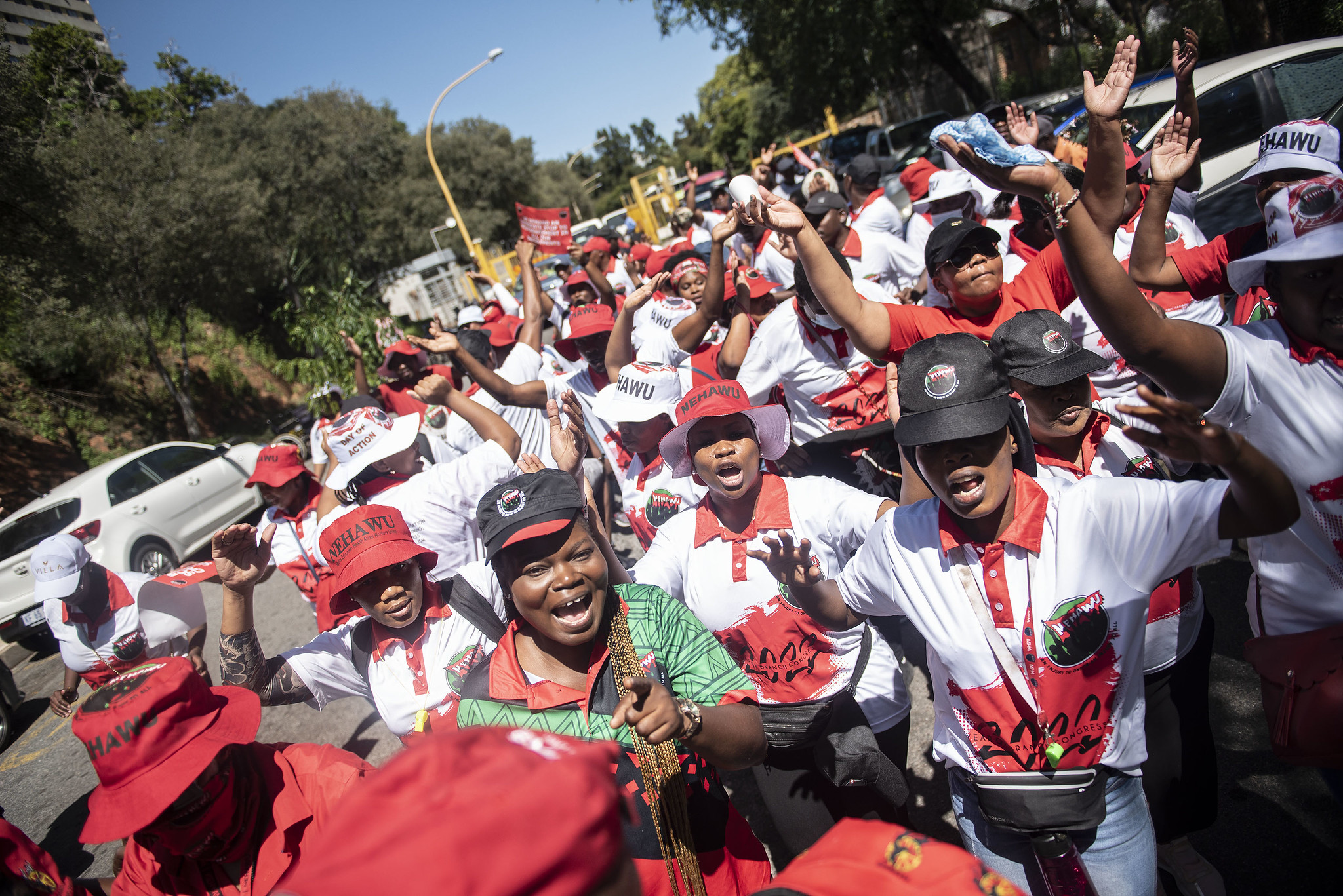As the protracted and crippling countrywide public sector wage strike enters its sixth day today – marred by violence, intimidation, arrests, deaths and disruption in health facilities – union federation Cosatu has expressed optimism about a deal being reached. At least four patients have died and six people arrested for public violence since the start of the strike, largely led by the Cosatu-affiliated National Education, Health and Allied Workers’ Union (Nehawu). While Cosatu national spokesperson Sizwe Pamla said the federation was making “political interventions” towards reaching an amicable agreement, he joined his SA Federation of Trade Unions (Saftu) counterpart Trevor…
As the protracted and crippling countrywide public sector wage strike enters its sixth day today – marred by violence, intimidation, arrests, deaths and disruption in health facilities – union federation Cosatu has expressed optimism about a deal being reached.
At least four patients have died and six people arrested for public violence since the start of the strike, largely led by the Cosatu-affiliated National Education, Health and Allied Workers’ Union (Nehawu).
While Cosatu national spokesperson Sizwe Pamla said the federation was making “political interventions” towards reaching an amicable agreement, he joined his SA Federation of Trade Unions (Saftu) counterpart Trevor Shaku in condemning acts of violence.
‘Victim of our own struggles’
Pamla said acts of violence are undermining the legitimacy of the strike.
“We continue to urge all our members to make sure the working class does not become a victim of our own struggles, when we should be persuading communities to join us in – averting any confrontation with them,” he said.
Shaku said Saftu called on all workers to “continue with the protest but exercise restraint and avoid violence at all costs”.
WATCH: Striking Nehawu workers meet their match in Westbury
He added: “Saftu does not condone violence. In all training for organisers and shop stewards, we always emphasise that violence is not permitted in strikes.
“The power of workers does not lie in violence, but in withdrawing their labour power.
“Criminal elements usually do not come from within union membership, but opportunistic elements from outside. Such elements must be dealt with harshly, as they depopularise the strike and drain sympathy from the public,” said Shaku.
He said the government must urgently meet the demand of 10% in order to end the impasse.
Revised offer
Independent political analyst Dale McKinley said he expected parties to the wage talks to soon reach a deal – similar to what happened in the past, where there was “a bit of a stalemate and then the government tabling a revised offer”.
“Eventually they will come to some agreement. While the strike may go on for a few days, it may not be for a long period,” McKinley said.
Condemning as “completely unacceptable” incidents of violence, he said have marred the strike action, he said: “It does not matter whether you are in the left, middle or in the centre ideologically – particularly with healthcare worker unions – you cannot have a situation where people are denied access to hospitals and emergency care.
READ MORE: People’s lives ‘not our responsibility’, says Nehawu leader as strike cripples hospitals
“This is unacceptable, regardless of what the union demands are – no matter how correct workers might be.
“Any serious and mature union, caring about people, would make a plan in terms of those who need healthcare, get it – not endangering patients to the point of dying, due to the strike.”
“We have seen workers on a peaceful picket line and making their voices heard elsewhere in the world and that can be done in South Africa,” McKinley said.
“This is a disgrace – violating all principles of collective solidarity with the workers. The majority of people coming to these hospitals are from the working class.”









